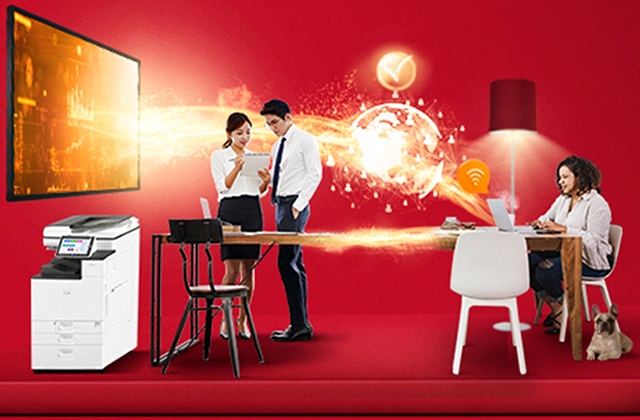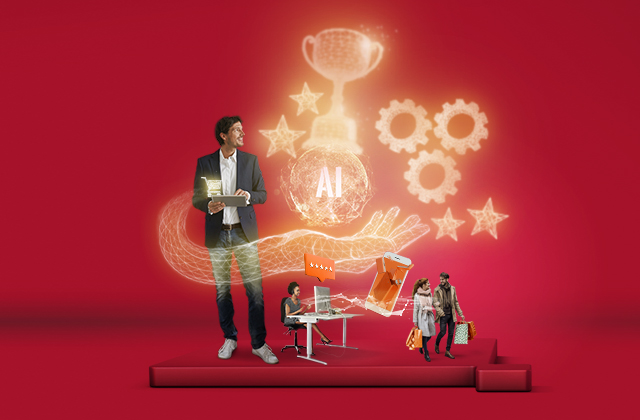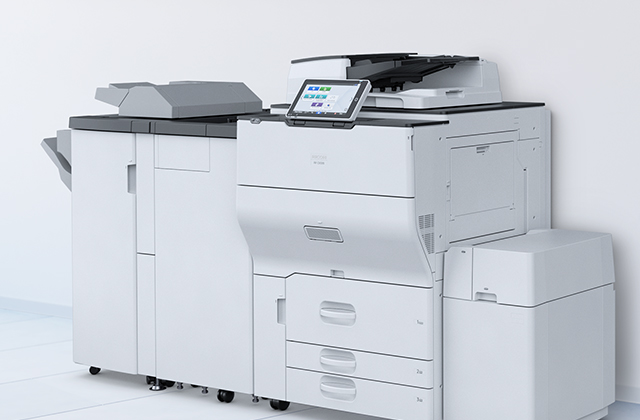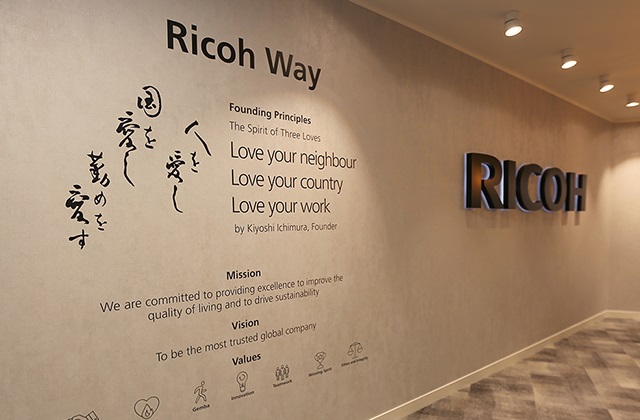Three ways to prepare for the mobile multi-generational workplace
By David Mills, CEO, Ricoh Europe
Ricoh Europe, London, 02, November 2015 – According to Deloitte’s 2015 Global Human Capital Trends Report , just 22 per cent of business leaders believe HR is adapting to the needs of their changing workforce. This is a shockingly low number and suggests that many businesses are in danger of not catering for the needs and desires of younger employees. If this continues, will Europe end up with a disengaged workforce?
This is particularly poignant because now with the arrival of Generation Z – those currently aged 19 years and younger – a new group is entering the workforce. We experienced significant change with the arrival of Generation X workers, which subsequently saw a huge shift towards new technology. So with the arrival of Generation Z, what new demands can we expect? How is the current workforce going to react? And how can companies prepare to ensure future success and competitiveness?
Generation Z are certainly expecting their arrival to create big changes, with 65 per cent claiming they will impact the workforce by bringing new ways of working, according to new research commissioned by Ricoh Europe. One of the biggest problems facing organisations is the difference in working styles, with 30 per cent of Generation Z listing a lack of flexible working hours as a cause for frustration. This is in stark contrast to other generations, especially Baby Boomers. In addition, almost three times as many Gen Zers are attracted to companies that offer technology that enables people to work more efficiently. This will likely cause issues when it comes to the four generations collaborating on tasks. And these problems have already been noticed by Generation Z, with 43 per cent saying they would be irritated by a lack of communication from colleagues.
Generation Z care far more about working for companies that are innovative and making a difference to the world. In fact, more than double the number of any previous generation said they were looking for this in their employer.
It’s clear to see that one of the biggest changes businesses will need to make, in order to meet the needs of all four generations, is routed in how information flows around the business. Information exchanges used to be simple, with many companies operating out of one office where employees could easily catch up face-to-face. But this has become more difficult as globalisation and mobilisation has increased, with more people working across different countries and time zones. As we enter the next phase of the workplace environment, this problem will only intensify.
In short, businesses need to consider three elements.
Tools
Generation Z’s desire to work flexibly and efficiently comes from the technologically advanced world they have grown up in. The likes of Skype and Amazon have resulted in a generation that is used to their needs being met almost immediately and from any location. This means the organisations that prove most attractive are those that take appropriate action to retire legacy systems and introduce truly agile technology that enables and encourages collaboration.
Processes
Businesses need to facilitate fluent, real-time information-sharing and respond effectively to the demands created by increasingly flexible, mobile working patterns. Technologies like cloud-based services have already addressed part of these problems, but as employee demands intensify, organisations will have embrace further change. Regular optimisation of underpinning business processes is a crucial step to ensuring they remain relevant and fit for purpose for years to come.
Mindset
While robust internal processes are paramount, the output is just as important. To attract and retain top talent organisations will need to adapt their mindset and strive to articulate the company’s purpose beyond just profit. This, of course, has other benefits in terms of revenue streams and brand reputation, but Generation Z needs to be able to see that this is happening – it cannot just be a side project.
The good news is that 88 per cent of workers across all four generations recognise the potential of a multi-generational workforce. However, employers must encourage collaboration. In such a competitive market, with the fight to secure top talent heating up, adapting to a 4G workforce must make its way towards the top of the business agenda.
| About Ricoh |
Ricoh is empowering digital workplaces using innovative technologies and services that enable individuals to work smarter from anywhere.
With cultivated knowledge and organizational capabilities nurtured over its 85-year history, Ricoh is a leading provider of digital services, information management, and print and imaging solutions designed to support digital transformation and optimize business performance.
Headquartered in Tokyo, Ricoh Group has major operations throughout the world and its products and services now reach customers in approximately 200 countries and regions. In the financial year ended March 2022, Ricoh Group had worldwide sales of 1,758 billion yen (approx. 14.5 billion USD).
For further information, please visit www.ricoh-europe.com
© 2023 RICOH COMPANY, LTD. All rights reserved. All referenced product names are the trademarks of their respective companies.
For further information, please contact:
Ricoh Europe PLC
Charlotte Fernandez
E-mail: media@ricoh-europe.com
Homepage: www.ricoh-europe.com
Join us on Facebook: www.facebook.com/ricoheurope
Follow us on Twitter: www.twitter.com/ricoheurope
Follow us on LinkedIn: http://linkedin.com/company/ricoh-europe
Visit the Ricoh media centre at: www.ricoh-europe.com/press














